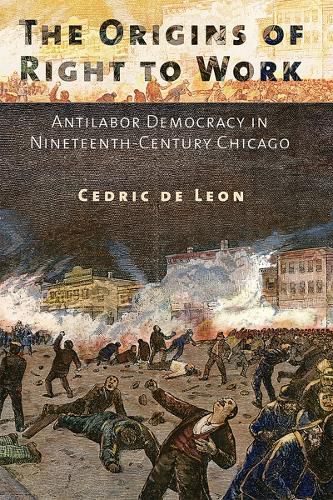Readings Newsletter
Become a Readings Member to make your shopping experience even easier.
Sign in or sign up for free!
You’re not far away from qualifying for FREE standard shipping within Australia
You’ve qualified for FREE standard shipping within Australia
The cart is loading…






Right to work states weaken collective bargaining rights and limit the ability of unions to effectively advocate on behalf of workers. As more and more states consider enacting right-to-work laws, observers trace the contemporary attack on organized labor to the 1980s and the Reagan era. In The Origins of Right to Work, however, Cedric de Leon contends that this antagonism began a century earlier with the Northern victory in the U.S. Civil War, when the political establishment revised the English common-law doctrine of conspiracy to equate collective bargaining with the enslavement of free white men. In doing so, de Leon connects past and present, raising critical questions that address pressing social issues. Drawing on the changing relationship between political parties and workers in nineteenth-century Chicago, de Leon concludes that if workers’ collective rights are to be preserved in a global economy, workers must chart a course of political independence and overcome long-standing racial and ethnic divisions.
$9.00 standard shipping within Australia
FREE standard shipping within Australia for orders over $100.00
Express & International shipping calculated at checkout
Right to work states weaken collective bargaining rights and limit the ability of unions to effectively advocate on behalf of workers. As more and more states consider enacting right-to-work laws, observers trace the contemporary attack on organized labor to the 1980s and the Reagan era. In The Origins of Right to Work, however, Cedric de Leon contends that this antagonism began a century earlier with the Northern victory in the U.S. Civil War, when the political establishment revised the English common-law doctrine of conspiracy to equate collective bargaining with the enslavement of free white men. In doing so, de Leon connects past and present, raising critical questions that address pressing social issues. Drawing on the changing relationship between political parties and workers in nineteenth-century Chicago, de Leon concludes that if workers’ collective rights are to be preserved in a global economy, workers must chart a course of political independence and overcome long-standing racial and ethnic divisions.